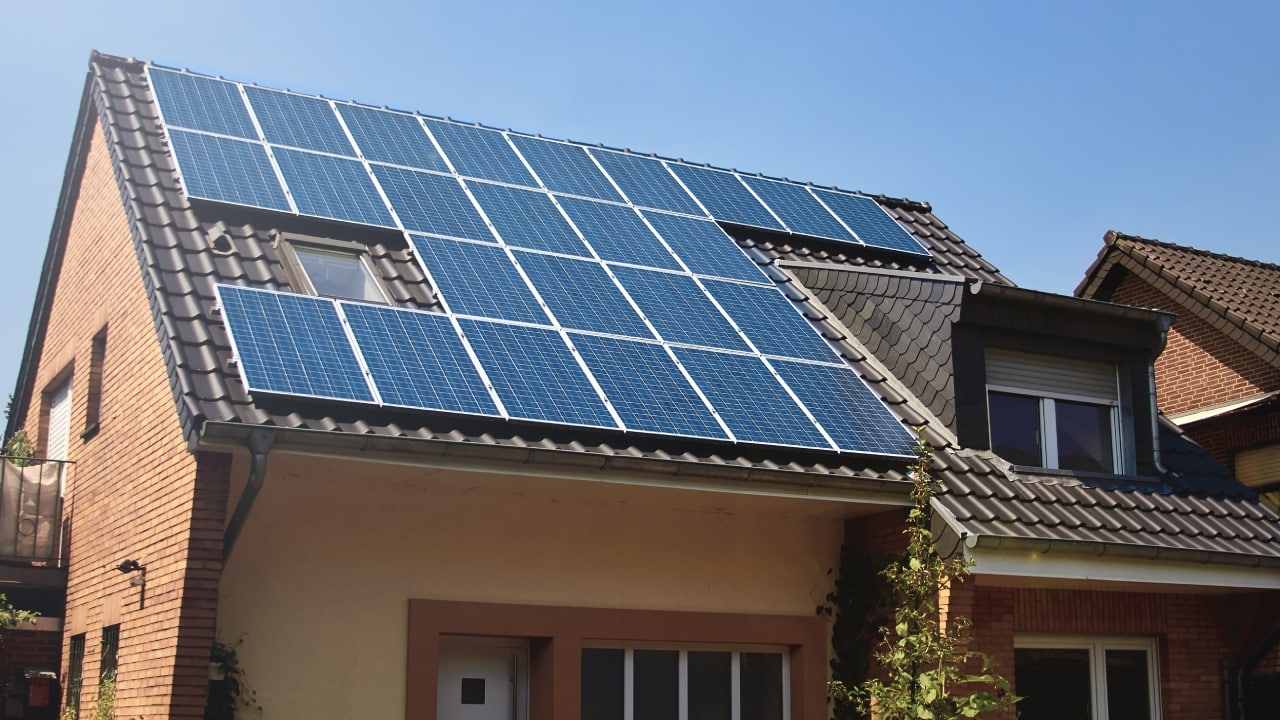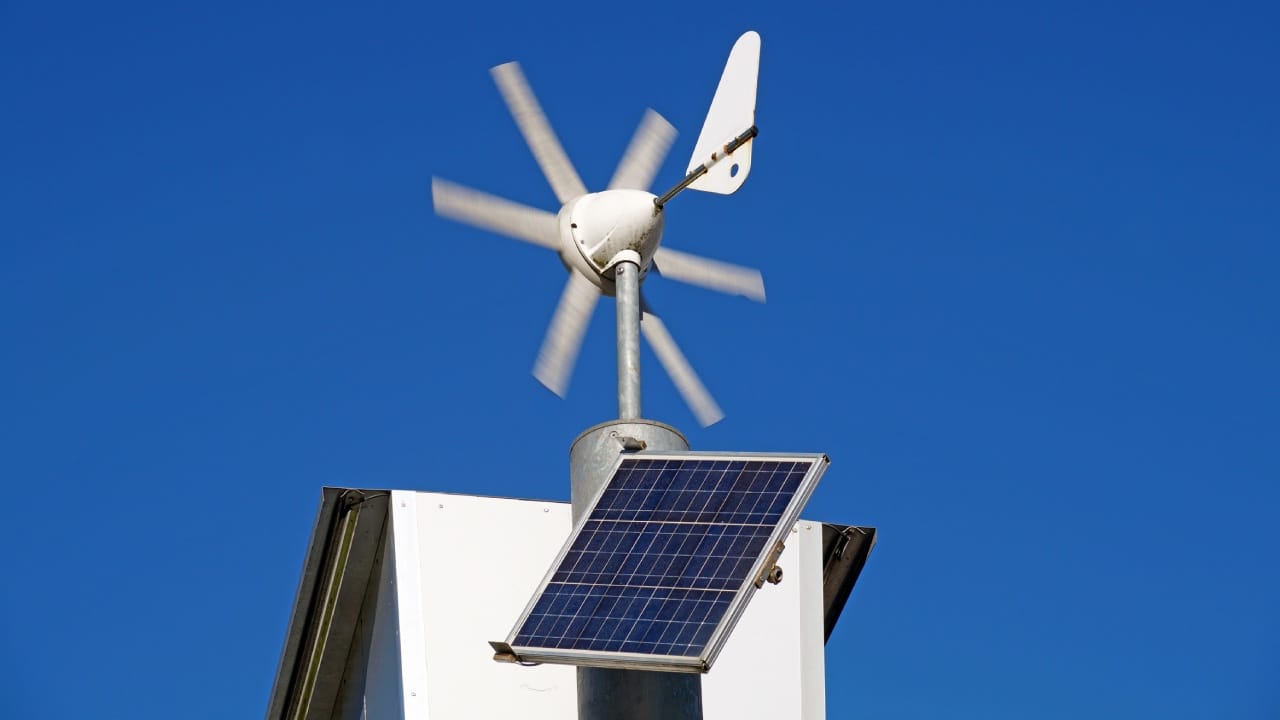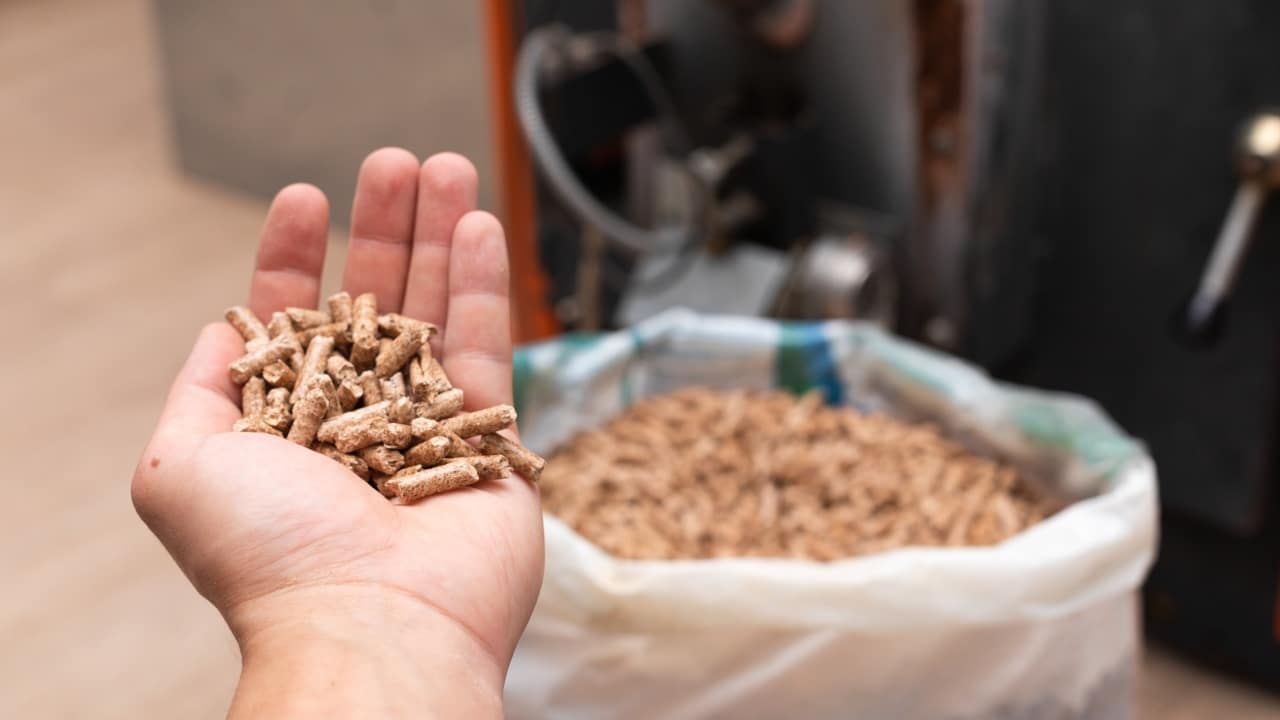Disclosure: FMB Home Picks is committed to delivering independent advice and reviews on home products and services. When you purchase through links on our site, we may earn an affiliate commission. Learn more Contact us.
Worried about crippling winter bills? Choosing between heat or food? Our guide to UK government grants for renewable energy home improvements can help

People in the UK can apply for government grants for renewable energy upgrades such as solar panels. (Image credit: Adobe)
With the focus on saving energy costs, many homeowners are looking to finance property improvements with government grants for renewable energy. Choosing renewable energy for your family’s electrical and heating needs reduces your carbon footprint, makes your home more sustainable and can significantly lower your energy bills.
But what is renewable energy, what grants and loans are available and who’s eligible?
We’re taking a closer look.
Often referred to as green or clean, renewable energy is generated from natural sources that are readily replenished. Energy gained from wind, sun, biomass and water gives off very few harmful greenhouse gases, and moving away from fossil fuels is a crucial step in the battle against climate change.
Solar panels generate energy from the sun allowing you to power and heat your home. During daylight hours, even on cloudy days, the panels capture the sun’s energy, storing it in batteries that allow it to be accessed 24 hours a day. Any excess electricity your family doesn’t use can be sold back to the National Grid as part of the Government’s Smart Export Guarantee (SEG).
Suitable for most UK homes, by installing solar panels, you could see savings of up to £800 a year and earn in the region of £100 a year by selling any unused electricity back to the grid.
An air source heat pump transfers heat from the air outside your property to water. Often called air-to-water heat pumps, the hot water produced can then be used to heat your home, and by storing it in a hot water cylinder, water for your family.
Suitable for many domestic properties, they are the most common form of heat pump used in the UK and can generate heat in temperatures as low as −15oC. Air source heat pumps can offer an average family home up to £2,200 off their annual energy bill when changing from an old, inefficient boiler.
Ground source heat pumps work in a similar way, but instead of gathering heat from the air, they absorb natural heat from the ground.

Wind power can be generated on a small scale by installing a domestic turbine. (Image credit: Adobe)
Not all wind energy is generated from vast wind farms – a free-standing or building-mounted wind turbine will produce enough energy to save, for the average household, around £340 a year. As with solar panels, the excess can be sold under the SEG scheme, earning you up to £300 annually.
Biomass systems provide households with heating and hot water by generating heat from burning organic materials, such as wood pellets or logs. Although the least carbon-friendly of the four main renewable energy systems, biomass heating still produces far less carbon than conventional fossil fuels. The carbon emitted equals the carbon dioxide absorbed by the original tree during its lifetime.
With the majority of UK homes able to use biomass heating, a wood-fuelled system could save the average household as much as £1,100 annually compared to an old electric system.
As part of its commitment to drastically reducing the UK’s carbon footprint, the Government has made funds available for homeowners to install renewable energy technology in their properties. This financial help comes in a variety of forms.

Biomass boilers most commonly use pellets made from compacted sawdust as fuel. (Image credit: Adobe)
The Boiler Upgrade Scheme, or BUS, is a Government backed up-front grant to help homeowners switch to renewable energy sources to heat their homes. On top of this is the existing five-year 0% VAT freeze for heat pumps. It was introduced to replace the Renewable Heat Incentive, which ended in March 2022.
Your chosen installer will apply for the grant with the figure deducted from your quote. The available grants are:
Am I eligible?
You may be eligible for a BUS if you:
Energy suppliers signed up for the Energy Company Obligation (ECO) scheme are obligated to promote, fit and fund energy measures that will lead to savings on bills, including solar panels and double glazing.
Am I eligible?
Primarily for vulnerable or low-income families, you could be eligible for ECO if you receive at least one of the following benefits:
Helping you make energy-saving home improvements, the Green Deal loan is designed to reduce the initial cost of installing any upgrades. The loan is repaid through a charge added to your electricity bill or prepayment meter for as long as you live in the property.
As the homeowner, you won’t be expected to contribute to the cost upfront. If you are a landlord, you will have to pay a minimum of one-third of the costs, with a maximum of £5,000. Unfortunately, the Green Deal loan is unavailable in Northern Ireland.
The typical improvements include:
The Home Upgrade Grant (HUG) is a government scheme that sees 22 local councils being awarded a share of the £67 million funding available. Low-income households that use off-grid gas, such as bottled gas or oil, will be eligible for receiving energy efficient home upgrades.
Contact your local council to learn about their eligibility conditions.
The Scottish Government is offering financial help to install energy efficient improvements to homes across the country as part of the Warmer Homes Scotland scheme. In the majority of cases, the homeowners won’t have to contribute.
Am I eligible?
To qualify, you must meet all the following criteria:
Either of the following criteria must apply:
Delivered by the Welsh Government, Nest is designed to help people across Wales and offers free energy efficient home improvements, including solar panel installation.
Am I eligible?
If you’ve taken advantage of the Welsh Government’s Warm Homes scheme, unfortunately, you aren’t eligible for a Nest grant if you still live in the same property.
To qualify, you must meet the following three conditions:
The means-tested benefits that qualify are:
Alongside the current eligibility conditions for people in receipt of a means-tested benefit, the new health criteria for free energy efficiency home improvements are:
Someone in the home must:
If you fulfil the criteria for any of these schemes, calculate the savings you could make with their improvements. It’s also a good idea to contact your gas and electric suppliers to ask if they have any extra promotions or special offers before winter arrives. Some local authorities are considering running their own schemes to help their communities.
If you’re struggling to pay your bills, Citizens Advice offer help and advice, and if your mental health is suffering due to financial worries, contact Mind for some practical coping strategies.